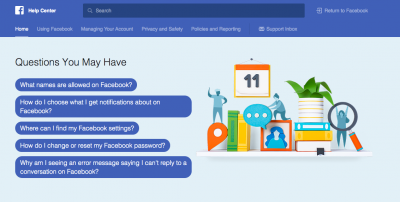
Social Media: How to Take Control
By Áine McCormack, M.A.
Social media platforms may try to force our lives around like a playground bully, but there are times when you may want to take back control and perhaps delete social media accounts. Whether you may miss the days of anonymity, or you might want to reclaim your privacy from companies, or the account is dated, or maybe you simply aren’t interested anymore, there are many reasons why people would choose to delete their accounts.
But what if you no longer have access to the credentials you used to create the account? Or what if you are responsible for removing the profile for a family member who has passed on? These very common what-ifs could present obstacles.
A majority of social media networks have steps in place to remove profiles. Áine McCormack is Hg’s in-house specialist on access-gaining requests. In this five-part blog series, she helps readers gain access to five social media platforms: MySpace, Facebook, Twitter, Instagram and Tumblr. This week we tackle Facebook.
Deleting a Facebook profile is simple to do—if you have access to the account. However, it is not easy to delete a Facebook account that you no longer have access to. Facebook encourages you to recover your account by clicking on the Forgot my password/Reset my password button on the log-in page and identify your account by the listed email or mobile number. It is possible you may not have access to either of these pieces of information. If this is the case, select that button option, and Facebook will ask you for another email address where it can contact you about recovering the account. It will also give you security questions you can answer right then, but you will have to wait 24 hours for access even if you answer them correctly. Once you gain access to the account, you can delete the profile under Account Settings.
Alternatively, you can report your profile which is found on the profile page. This is not a very efficient way of doing things, and there is no guarantee it will lead to the removal of the profile. But you can follow up on it by contacting Facebook directly at support@facebook.com.
Facebook does give you the option to either remove or memorialize your loved one’s profile at your request. Submit a request through Facebook’s Help page with a copy of the deceased’s birth certificate, death certificate, or obituary, and the URL link to the deceased’s profile. If you choose to memorialize the account, the account’s privacy will be set so that only existing confirmed friends can search for and see the profile. The wall remains active so that friends and family can post condolences, but certain profile information is removed (for example, status updates, contact information, and groups). Once an account has been memorialized, it prevents anyone from logging into it in the future.
Check back next week when we review the process of removing yourself from Twitter.

Are you an analyst or investigator looking for advanced training on the latest protocols to spotlight the brightest and best in social media monitoring for protective intelligence? If so, check out Hg’s webinar series, where you can attend live sessions and receive CEUs or watch previously recorded sessions to beef up your OSINT & SOCMINT skills.

Are you looking for an investigative team to help you unearth information on a potential business partner? Acquisition? Hetherington Group leads in online and social media investigations, having trained over 180,000 corporate security professionals, attorneys, accountants, auditors, military intelligence professionals, and federal, state, and local agencies in Open Source Intelligence (OSINT) and Social Media Intelligence (SOCMINT). Our skilled analysts excel at exposing financial risks, reputational issues, criminal activity, and legal actions detrimental to your personal and business stability. Learn how our team can arm you with the data you need.

Áine McCormack, MA joined Hetherington Group in 2017 as an Investigative Analyst and Case Manager. With her keen ability to understand and summarize large amounts of information in a concise manner, she communicates to our clients exactly what they need to know, when they need to know it. Her primary tasks involve specialist desktop research and analyses of public record and open source information in support of business due diligence and other investigative projects.



